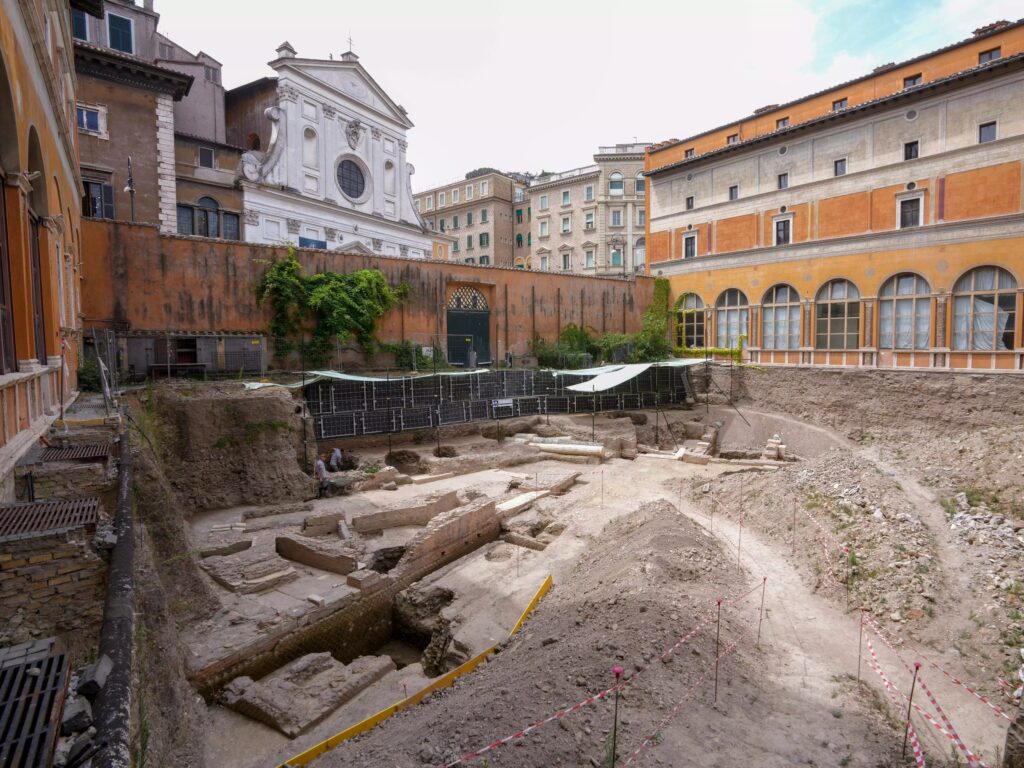Nero, the emperor of Rome who ruled from AD 54 to AD 68, was known to have an inclination towards the arts, particularly poetry, music, and theater. His famous last words were, “What an artist dies with me!” Experts believe he may have left behind physical remnants that refer to his love for the arts in a recent archaeological excavation.
The grand dig unearthed what seems to be remains of a theater in the courtyard of the Palazzo della Rovere, just a short walk from the Vatican. This “exceptional” discovery is believed to be a place indicated in Roman history, where Nero performed musical pieces and rehearsed poetry. It was only now that it has been located.

The historical site has been in the works since 2020. Archaeologists claim to have found a portion of a hemicycle-shaped seating area, marble columns, gold-leaf decoration on stucco, and storage rooms designed for keeping costumes and scenery. Alongside the theater’s ruins were possible remains of Emperor Caligula’s Horti di Agrippina, a horse racing circus. Traces of pilgrimage activities from the medieval age and 15th-century artifacts were among the discovered antiquities.
It was reported as well that the excavation found rare pieces of medieval goblets and pots, coins, musical instruments, combs from bone, tools to make rosary beads, and insignia of Christian devotion. Archaeologist Marzia Di Mento told ABC News that these findings will take several years to survey. “It is a superb dig, one that every archaeologist dreams of…being able to dig in this built-up, historically rich area is so rare,” she said.
Archaeologists reported that cataloging and analyzing all discoveries will follow before the area is enclosed for protection and the palazzo restored to its original state. Part of the building is expected to be built as Four Seasons Hotel, opening in 2025.
Local officials assured that these artifacts will be displayed and all findings will be put in a public data bank to contribute to the collection of information on life in Rome throughout the centuries.
Other POP! stories that you might like:
‘The Marvels’ movie considering delayed release due to ongoing strikes
The first-ever smart gun with fingerprint and facial detection systems arrives on the market
U.S. government withheld information about UFOs, former military intelligence officer claims